Hal Ashby

Director
Birth Date: September 2, 1929
Death Date: December 27, 1988 — 59 years old
Birth Place: Ogden, Utah
After winning acclaim as a film editor, Hal Ashby went on to establish himself as one of the leading directors of the 1970s. He proved successful with both satiric material and strong drama and was able to elicit excellent performances from a gallery of actors including Lee Grant, Jon Voight and Jane Fonda, all of whom won Oscars under Ashby's direction.
Born and raised in Utah, Ashby had a rather unhappy childhood. His parents divorced when he was around six and his father committed suicide seven years later. Finding school work difficult, Ashby dropped out in his senior year. A period of instability followed; reportedly he held a number of jobs and was twice married and divorced before he decided to hitchhike to L.A. in 1953. Thanks to the California State Department of Unemployment, he began his Hollywood career as a mimeograph machine operator at Universal Studios in 1957. Deciding that he wanted to direct movies, Ashby was told the best way to achieve that goal would be to become a film editor. Despite finding the union rules (which required an eight year apprenticeship) somewhat stifling, the fledgling filmmaker began as an assistant to Robert Swink, earning his first credit on "The Big Country" in 1958. Within a decade, he had risen to editor on Tony Richardson's "The Loved One" (1964).
Norman Jewison tapped him to cut "The Cincinnati Kid" (1965) and the pair went on to establish a fruitful collaboration that yielded "The Russians Are Coming, The Russians Are Coming" (1966, for which Ashby earned his first Oscar nomination), "In the Heat of the Night" (1967, for which he won an Oscar) and, especially, "The Thomas Crown Affair" (1968). The latter marked Ashby's first collaboration with Pablo Ferro, who created and edited the special multiple screen effects sequence which garnered much critical praise; they were to work on a number of other projections over the next decade.
When Jewison was unable to carry out the assignment of helming "The Landlord" (1970), he offered Ashby a chance to handle the directing chores. An offbeat comedy about a rich white man (Beau Bridges) who buys a Brooklyn tenement in a ghetto and finds the residents unwilling to move. Critics were divided as to whether the film was hilarious or too slick. Lee Grant earned a Best Supporting Actress Oscar nomination as Bridges' dense mother.
Ashby's second outing behind the cameras resulted in the cult classic "Harold and Maude" (1971). Another black comedy with a biting script by Colin Higgins, the film centered on the unlikely relationship between a rich kid (Bud Cort) who fakes suicides and a free-spirited septuagenarian (Ruth Gordon). Ashby demonstrated a sure hand with the actors (particularly Vivian Pickles as Harold's mother) and struck a balance between whimsy and absurdity.
"The Last Detail" (1973) was on the surface a road movie about two military policemen (Jack Nicholson and Otis Young) assigned to escort a kleptomaniac sailor (Randy Quaid) from Virginia to a navy prison in New Hampshire. With a bitterly cynical script by Robert Towne, "Last Detail" marked the turning point in Ashby's career, with many critics proclaiming this film his best. Focusing more on character and eschewing flashy techniques, the director executed a somber variation on the theme of much of his work: how does one live?
"The Landlord" and "Harold and Maude" both suggested individualistic approaches to life from an external view while in "The Last Detail," the issue is internalized. Life for its characters is a series of prisons, many of their own making. To symbolize this constriction, Ashby employed fewer rhythmic montages and used more dissolves and tight shots. The result earned Oscar nods for stars Nicholson and Quaid and for Towne's script.
As a follow-up, the director was initially set to reteam with Nicholson on "One Flew Over the Cuckoo's Nest," but a disagreement over the direction of the script led to Ashby's resignation. Instead, he became intrigued by a script that Robert Towne and Warren Beatty had co-written, "Shampoo" (1975), a satirical look at the mores of Beverly Hills. Ashby was near his peak handling the story's complicated sexual entanglements and amoral characters that were reminiscent of a Restoration comedy. "Shampoo" was a box-office hit and garnered a Best Supporting Actress Oscar for Lee Grant.
With the clout of a success, the director signed to helm a biopic of folk singer Woody Guthrie, "Bound for Glory" (1976), adapted from the singer's autobiography by Robert Getchell. Gorgeously photographed by Haskell Wexler, the well-cast feature (including David Carradine, Melinda Dillon and Ronny Cox) received critical encomiums but a so-so box office. Ashby's direction was cited by several reviewers who praised the pacing and dramatically credible storytelling. The film was nominated for six Oscars, including Best Picture and won for Wexler's cinematography and Leonard Rosenman's adapted musical score. Ironically, Ashby was not nominated as Best Director.
He would receive that honor for his next film, the Vietnam-era drama "Coming Home" (1978). Initiated by star Jane Fonda, who had her own history in the anti-war movement, the film was a character study that narrowly avoided verging into soap opera. Reportedly, when production began, there was no completed script, yet however difficult a shoot it might have been, audiences embraced the results. "Coming Home" was a financial success and, along with "The Deer Hunter" (also 1978), helped Americans confront some of the legacies of the Vietnam War despite its triangular love story between Fonda, Jon Voight (as a paraplegic) and Bruce Dern (as Fonda's gung-ho Marine husband). Overall, the film earned eight Oscar nominations and won awards for Fonda, Voight and screenwriters Nancy Dowd, Waldo Salt and Robert C Jones.
The last of Ashby's well-received films was "Being There" (1979), a black comedy about life in the television age that was marred by its length. Again, the director elicited terrific performances. Peter Sellers had the lead playing a simple-minded gardener whose homely pronouncements are misinterpreted as profound statements; eventually he goes from nobody to household name and presidential candidate. Among the others in the outstanding cast were Jack Warden (as the US president), Shirley MacLaine as a wealthy society matron and Melvyn Douglas (who earned his second Best Supporting Actor Oscar) as her billionaire husband. Ashby handled the material with a sure hand and the film provoked many heated debates over its themes.
The decade of the 1980s, however, saw Ashby hit a slump from which he never recovered. Some attributed the decline in quality to personal problems (including alleged substance abuse) while others faulted his choice of material. "Second-Hand Hearts" (1980) had actually been filmed before "Being There" but a distribution disagreement delayed its release. Originally titled "The Hampster of Happiness," the film was a road movie about a drunken loser (Robert Blake) who marries an aspiring singer (Barbara Harris). Critics further carped over "Lookin' to Get Out" (1982), co-written by star Jon Voight, was a predictable Runyonesque story of a small-time gambler. Shot in 1980, Ashby spent over two years editing the film, but the end result was dismissed by the critics and audiences. Except for the superior documentary of the Rolling Stones tour, "Let's Spend the Night Together" (1982), Ashby's remaining output was inferior to his best work.
"The Slugger's Wife" (1984) was a bad Neil Simon script loosely based on the real-life romance of baseball player Mike Marshall and rock singer Belinda Carlisle with Michael O'Keeffe and Rebecca DeMornay. Most reviewers singled out the supporting cast (including Martin Ritt and Randy Quaid) but over-all gave thumbs down. Ashby's last feature was "8 Million Ways to Die" (1986), a tale of drug dealers adapted from Lawrence Block novel by Oliver Stone. He was eventually locked out of the editing room after clashing with the producers over the direction of the film. The final result met a mixed critical reception and was a box-office disappointment.
At the time of his death from liver and colon cancer in December 1988, Ashby had a number of projects in development, including "Tootsie," several projects with Jack Nicholson and an adaptation of Truman Capote's "Hand Carved Coffins."
Credits

The Rolling Stones - Live at the Coliseum
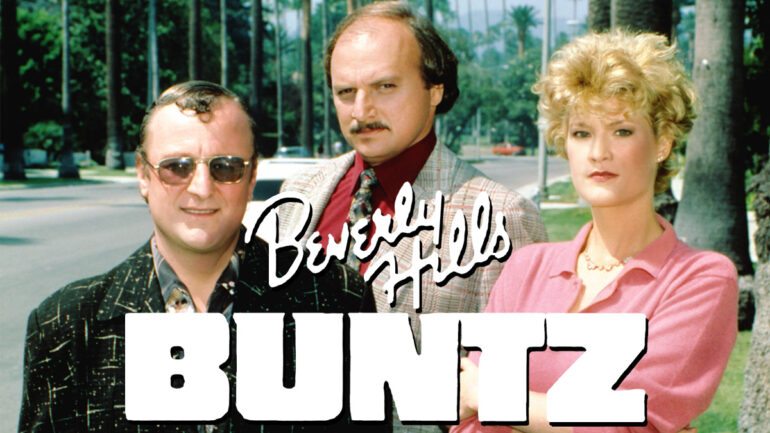
Beverly Hills Buntz
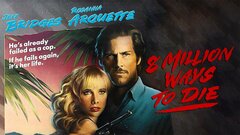
8 Million Ways to DieStream

The Slugger's Wife

Lookin' to Get Out

Let's Spend the Night Together

Vamos a Pasar la Noche Juntos

Second-Hand Hearts

Being ThereStream
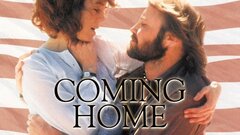
Coming Home

Atado por el Deber

Bound for Glory

En Route pour la gloire
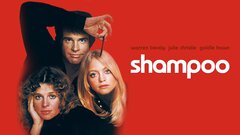
ShampooStream
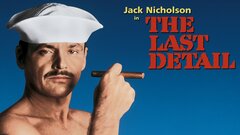
The Last DetailStream

Enséñame a Vivir
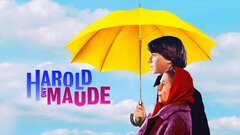
Harold and MaudeStream

The Landlord
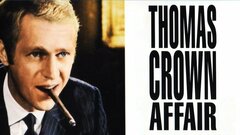
The Thomas Crown AffairStream

The Thomas Crown AffairStream
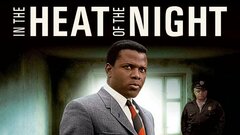
In the Heat of the NightStream

In the Heat of the NightStream
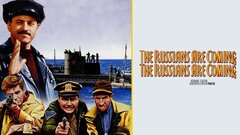
The Russians Are Coming, The Russians Are ComingStream
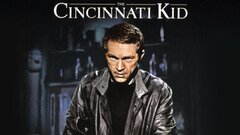
The Cincinnati KidStream












